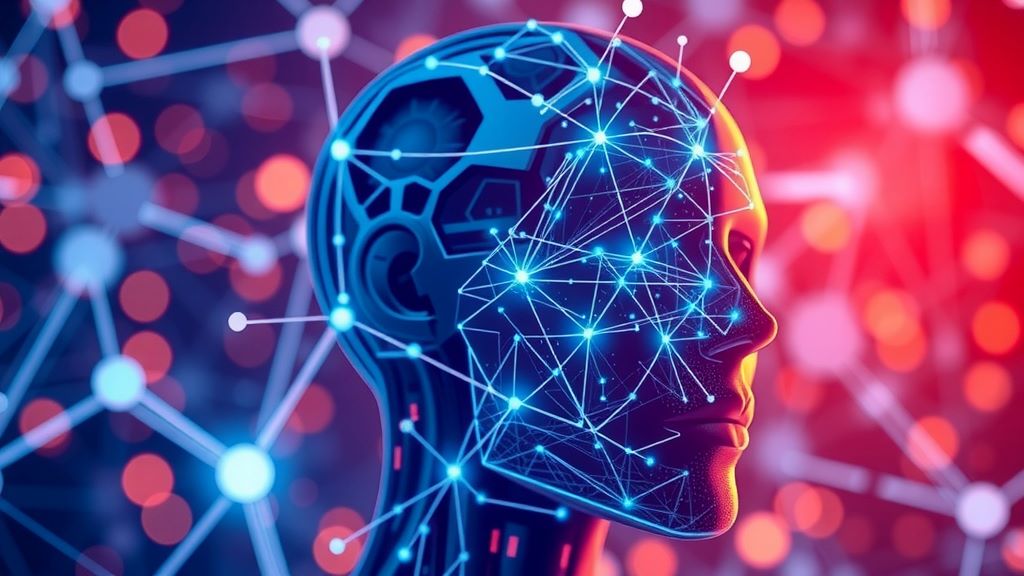The Future of Artificial Intelligence:
Future of Artificial Intelligence (AI) has rapidly evolved from a niche technological field into a transformative force impacting nearly every aspect of our lives. As we look to the future, the potential of AI is immense, bringing both exciting opportunities and significant challenges. This article will explore the current trends in AI, the challenges we face in its development and deployment, and the opportunities it presents for businesses and society at large.

The Future of Artificial Intelligence: Current Trends in AI
Artificial intelligence (AI) continues to reshape our world, driving innovation and transforming various sectors. This article explores current trends in AI, highlighting its advancements, applications, challenges, and opportunities for the future.
Machine Learning Advancements
Machine learning (ML), a subset of AI, is making significant strides in its ability to analyze data and learn from it without explicit programming. Modern algorithms are becoming more sophisticated, enabling systems to perform complex tasks such as image recognition, natural language processing, and game playing at unprecedented levels. Deep learning, a technique within ML, mimics the human brain’s neural networks, allowing for even more advanced capabilities. These advancements are pivotal for industries ranging from finance to healthcare, enhancing efficiency and accuracy.
Natural Language Processing (NLP)
Natural language processing is revolutionizing the way humans interact with machines. AI systems can now understand and generate human language with remarkable accuracy. Applications such as chatbots, virtual assistants, and sentiment analysis tools are increasingly integrated into customer service, marketing, and healthcare, facilitating more efficient communication and engagement. As NLP continues to evolve, it opens new avenues for enhancing user experience and automating tasks traditionally performed by humans.
AI in Healthcare
The healthcare industry is experiencing a revolution due to AI technologies. From diagnostic tools that analyze medical images to predictive analytics assessing patient risk factors, AI is improving patient outcomes and streamlining operations. For instance, AI algorithms can analyze vast amounts of data to identify potential disease outbreaks or recommend personalized treatment plans. The ability to harness data effectively enables healthcare providers to make more informed decisions, ultimately enhancing patient care and operational efficiency.
Robotics and Automation
AI-powered robotics are being deployed across various industries, including manufacturing, agriculture, and logistics. Automation is enhancing productivity and reducing costs, allowing companies to optimize their operations. Robotics combined with AI can perform tasks ranging from assembly line work to precision farming, changing the landscape of traditional industries. As these technologies become more advanced, they promise to improve efficiency and accuracy, leading to significant economic benefits.
Ethical AI
As AI becomes increasingly integrated into daily life, ethical considerations surrounding its use are gaining attention. Issues such as bias in algorithms, data privacy, and accountability for AI decisions are critical discussions among policymakers, technologists, and ethicists. Organizations are recognizing the need for ethical frameworks and guidelines to ensure responsible AI deployment. Addressing these ethical implications is crucial for building trust and ensuring that AI technologies are developed and used responsibly.
Challenges in AI Development
Despite the advancements, several challenges in AI development must be addressed:
- Data Privacy and Security: AI systems require vast amounts of data to function effectively. This raises significant concerns about data privacy and security, especially in light of regulations like the General Data Protection Regulation (GDPR). Organizations must ensure that data is used ethically and securely, balancing innovation with compliance.
- Bias and Fairness: AI systems can inadvertently perpetuate biases present in their training data, leading to unfair outcomes. For example, biased algorithms in hiring processes can disadvantage certain demographic groups. Ensuring fairness in AI systems is essential for building trust and preventing discrimination.
- Job Displacement: As AI and automation technologies advance, there is growing concern about job displacement across various sectors. While AI may create new job opportunities, it can also eliminate certain roles, particularly those involving repetitive tasks. Proactive workforce planning and reskilling initiatives are necessary to help individuals transition into new roles.
- Regulation and Governance: The rapid advancement of AI has outpaced regulatory frameworks. Policymakers must strike a balance between fostering innovation and ensuring public safety. Establishing clear guidelines for AI development and deployment is essential to mitigate risks while allowing for growth in the sector.
- Public Perception and Trust: Gaining public trust in AI technologies is critical. Misunderstandings and fear surrounding AI can hinder its adoption. Educating the public about AI’s capabilities, limitations, and ethical considerations is essential for fostering a positive perception of the technology.
Opportunities Presented by AI
The Future of Artificial Intelligence (AI) presents numerous opportunities:
- Enhanced Decision-Making: AI can analyze vast amounts of data, providing insights that humans may overlook. Organizations can leverage AI-powered analytics to make more informed decisions, optimize operations, and improve customer experiences.
- Personalization: AI enables businesses to deliver personalized experiences to customers. By analyzing user behavior and preferences, AI systems can recommend products, services, and content tailored to individual needs, enhancing customer satisfaction and loyalty.
- Sustainability and Environmental Impact: AI has the potential to address global challenges such as climate change and resource scarcity. From optimizing energy consumption in smart grids to improving agricultural practices through precision farming, AI technologies can contribute to sustainable development and environmental conservation.
- Innovation in Transportation: The rise of autonomous vehicles represents one of the most exciting applications of AI. Self-driving cars and drones have the potential to revolutionize transportation, making it safer and more efficient. AI can optimize traffic patterns, reduce accidents, and improve logistics in supply chain management.
- AI in Education: AI can transform the education sector by providing personalized learning experiences. Adaptive learning platforms can assess students’ strengths and weaknesses, tailoring content to their individual needs. Additionally, AI can assist educators in identifying at-risk students and developing targeted interventions.
Conclusion
The future of artificial intelligence is both promising and complex. As AI continues to evolve, it will undoubtedly shape the way we live and work. Embracing the opportunities presented by AI while addressing the associated challenges will require collaboration among technologists, policymakers, businesses, and society as a whole. By prioritizing ethical considerations and responsible AI development, we can harness the full potential of this transformative technology, creating a better future for everyone.
For more information about the future of artificial intelligence and its implications, you can explore resources from organizations such as the World Economic Forum and MIT Technology Review.


